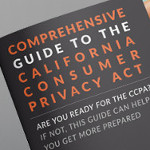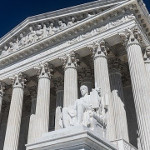The Consumer and Governmental Affairs Bureau of the Federal Communications Commission (FCC) has ruled faxes sent to “online fax services” are not faxes to “telephone fax machines,” a major victory declaring online fax services outside the scope of statutory provisions within the Telephone Consumer Protection Act of 1991 (TCPA) and the Junk Fax Protection Act of 2005.
In its petition for this declaratory ruling, Amerifactors Financial Group, LLC is represented by RumbergerKirk attorneys Douglas B. Brown and Samantha Duke, along with Steven A. Augustino of Kelley Drye.
A release from the firm outlined the case:
“With the evolution of modern business communications at the forefront of its decision, the FCC’s declaration provides much needed clarification for businesses and consumers who rely on the security of online fax services for sensitive communications that cannot be transmitted by email or other means. Furthermore, the ruling distinguishes online fax services as ‘a cloud-based service consisting of a fax server or similar device’ that allows users to access ‘faxes’ the same way as email and asserts Amerifactors’ arguments that online faxes do not result in the harm that Congress sought to avoid in the TCPA and, among other arguments, ‘would be a first step toward curbing abusive litigation practices.’
“The FCC concludes ‘in short, online fax services differ in critical ways from the traditional faxes sent to telephone facsimile machines Congress addressed in the TCPA’ and refutes commenters suggesting ‘other inconveniences necessitate that all computers and devices being sent faxes be deemed telephone facsimile machines.’ In doing so, the FCC further underscores the ‘more general harms that such commenters point to – such as time spent monitoring unwanted faxes stored by online fax services – are more general harms that go beyond the specific harms Congress identified in enacting the TCPA.’
“This decision of the Bureau has broad implications to all TCPA-fax class actions. First, according to the Hobbs Act, federal district courts are bound to follow the FCC’s rules, regulations, and orders relating to the TCPA. Thus, this declaratory ruling is now the law of the land when it comes to this issue in all district courts in the country.
“Second, this ruling now makes the method by which the fax was received key to determining whether any particular unsolicited facsimile violates the TCPA. This individualized determination will most certainly complicate any attempt to certify a TCPA-fax class action as the question of whether the facsimile was sent to an online fax service will predominate over any common issue.”






